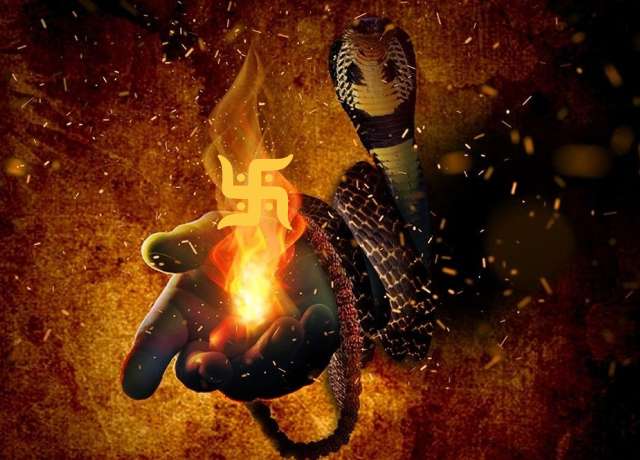Expressive, filled with colorful symbols, rich traditions, and rituals. This is how desi culture is often described, but what lies beneath the vibrant lights is a complex system of beliefs and rich heritage that revolves around the pursuit of luck and prosperity, and the overall well-being too.
How Hinduism influences India’s culture of luck
India’s culture can be best described as multilayered, imbued with a myriad of religious and superstitious beliefs that lead to luck and abundance. In fact, the country’s predominant religion, Hinduism, is full of references to fortune—and this has undoubtedly influenced the culture of luck in India.
In Hinduism, wealth is divine. All the gods of Hinduism live in opulence, with Lakshmi being one of the most important deities associated with prosperity and wealth. The goddess is known by over 70 names and can be found everywhere in the country as she is worshipped for her unlimited ability to bless people with luck and power, and yes, even beauty, according to a study delving into luck and abundance in Indian culture by ENV Media, a media company engaged in lead generation and performance marketing within the iGaming industry.
“The pursuit of luck, abundance, and prosperity has always been an essential part of one’s overall wellbeing. The country’s predominant religion, Hinduism, is full of references to fortune, on par with many other spiritual principles found in scriptures and cultural traditions,” ENV Media analysts wrote in the report.
Rituals and symbols reveal what interests Indian players
The comprehensive ENV Media report highlights the traditions and rituals that are seen to bring luck; however, analysts have pointed out that such rituals may not have an immediate application to online gaming, especially for online betting beginners.
Still, it’s clear that these beliefs heavily influenced the culture of luck in the country. As the ENV report analysts said, these rituals and symbols “reveal what interests, influences, and moves the average desi user when pursuing a lucky streak or hoping for a fortunate turn.”
It’s important to note the Hinduism isn’t just about pursuing Lady Luck; wealth is seen as an essential requirement for the preservation and continuation of life on earth, which means that one should discern the right from wrong and make thoughtful decisions when pursuing prosperity and liberation.
Looking for luck goes beyond religion—and though it is the predominant culture, Hinduism is only one of the four major denominations that emerged from India’s rich history of religious and mystic traditions (there’s also Buddhism, Jainism and Sikhism). And even outside of those four, people are also open to trying different ideas to get some extra help.
Vastu Shastra, for example, is widely popular even in contemporary India, as seen in many workplaces and households. This “science of architecture” focuses on traditional Indian design, from layout and measurements, to ground preparation and space arrangement, and spatial geometry, and how it can bring prosperity by integrating architecture with nature.
Even Indian gamers have their favorite superstitions that they religiously follow. Some players carry with them a talisman, a charm, some crystals, or jewelry when they enter the casino; even online gaming players observe some form of ritual or superstition to determine their luck. ENV Media analysts explained it best, saying: “The pursuit of happiness is intrinsic to all humans as it is unceasing. Indians are also attempting and exploring ideas and behaviors that might make them feel more fortunate and blessed.”

